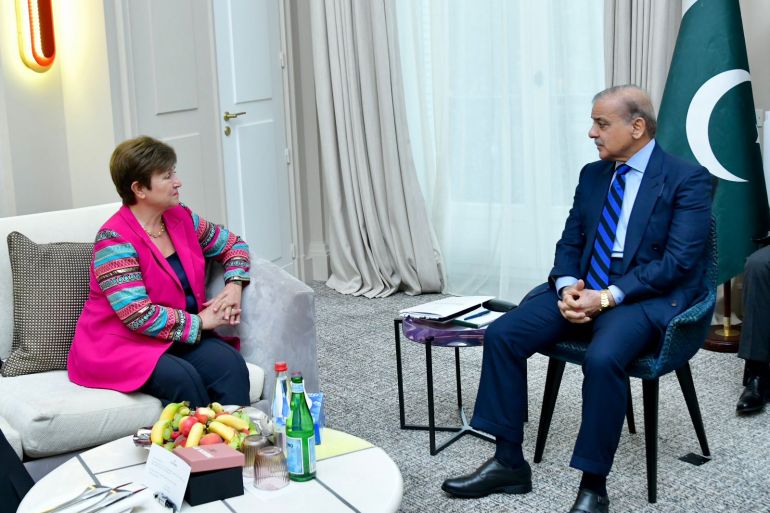After revising the budget in accordance with IMF requirements, the government anticipates a breakthrough announcement from the global lending agency within the next few days in order to obtain desperately needed bailout funds.

“Nearly all irritants between the IMF staff and the Ministry of Finance were resolved hours before the finance minister’s closing remarks on Saturday,” an official said, adding that announcing the successful conclusion of the ninth review was an IMF privilege and a mere formality at this point.
The official stated that it was now the responsibility of the IMF mission to coordinate the exact dates for executive board approval and disbursement of funds. The $6.5 billion Extended Fund Facility agreed to in 2019 is scheduled to expire on June 30, 2019.
Last week in Paris, Prime Minister Shehbaz Sharif held back-to-back meetings with IMF Managing Director Kristalina Georgieva.

After lender objections, initial revenue and expenditure proposals for fiscal 2024 have been significantly revised.
A government official told that the initial budget, which was presented on 9 June, was substantially altered after it had been thoroughly debated in the parliament.
“This is the first time that the parliament has passed a budget without discussing it, and major changes were announced after the debate had concluded,” he said.
Changes include Rs215 billion in additional tax measures, Rs85 billion in expenditure cuts, the withdrawal of an amnesty on foreign exchange inflows, the lifting of import restrictions, a Rs16 billion increase in BISP allocations, and the authority to increase the petroleum levy from Rs50 to Rs60 per litre.
Officials insisted, however, that the petroleum tax would not increase on July 1, the first day of the next fiscal year. In fact, the authorities believed that the increase might not be necessary at all if the already-depressed level of petroleum product consumption dropped significantly.
They reported that the authorities were also negotiating with the Islamic Development Bank for maximal upfront disbursements from its already-announced portfolio of more than $4 billion in order to maintain low foreign exchange reserves until IMF assistance arrives.

Due to impending holidays and inherent systemic and administrative delays, the removal of import restrictions would also require some time to become effective.
More than $4 billion in import shipments must be cleared against foreign exchange reserves totaling $8.86 billion, including the central bank’s holdings of $3.54 billion.
Esther Perez Ruiz, the IMF’s resident representative in Pakistan, did not respond to a request for comment.
After the budget was unveiled on June 9, she publicly criticized the budgetary measures, arguing that the government had lost an opportunity to broaden the tax base in a more progressive manner, and that the extensive list of new tax expenditures further eroded the tax system’s fairness.
Ms. Ruiz also expressed concern that the new tax amnesty violated the Fund programme’s conditions and governance agenda, as well as set a precedent that was detrimental. She requested that the government revise the budget prior to approving it.
Pakistani authorities stated that these demands had been met.

